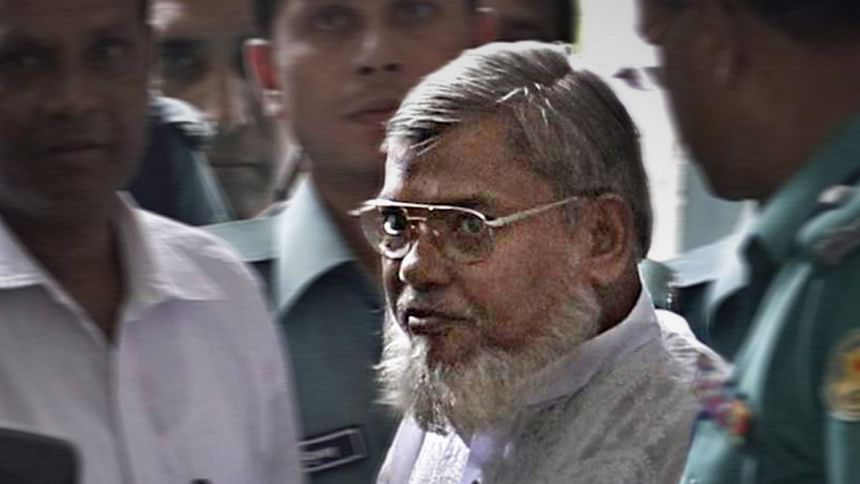SC upholds Mojaheed death penalty

The Supreme Court today upheld the death penalty to war criminal and Jamaat-e-Islami leader Ali Ahsan Mohammad Mojaheed for killing intellectuals during Liberation War in 1971.
The SC verdict paves the way for execution of the Jamaat leader – also the chief of notorious al-Badr.
The apex court, however, commuted Mojaheed's death penalty to life term imprisonment for killing people in Bakchar area of Faridpur during the Liberation War in 1971.
The SC also upheld his five years' imprisonment for confining and torturing Ranjit Nath during the war. On the other hand, the Jamaat secretary general was acquitted from the charge of abducting and killing Serajuddin Hossain during the war.
A four-member bench of the Appellate Division headed by Justice Surendra Kumar Sinha came up with the verdict at 9:05am. The three other judges of the bench were Justice Nazmun Ara Sultana, Justice Syed Mahmud Hossain and Justice Hasan Foez Siddique.
This is the fourth time the Appellate Division of the SC delivered a verdict on an appeal against a tribunal's judgment.
This is the first time a former minister has been sentenced to death by the SC for committing crimes against humanity in 1971.
In July 2013, the International Crimes Tribunal-2 sentenced the 67-year-old Jamaat-e-Islami secretary general to death, jailed him for life and sentenced him to five years in prison in five separate charges.
Mojaheed filed the appeal with the SC on August 11 the same year, seeking acquittal of all the charges against him.
According to the tribunal's verdict, Mojaheed led a "death squad" named Al-Badr that worked as an auxiliary force of the Pakistan army.
Mojaheed, who was made a technocrat minister during the BNP-Jamaat-led four-party alliance rule in 2001-2006, came under huge criticism for his audacious comment in 2007 that there were no war criminals in the country.

 For all latest news, follow The Daily Star's Google News channel.
For all latest news, follow The Daily Star's Google News channel. 



Comments